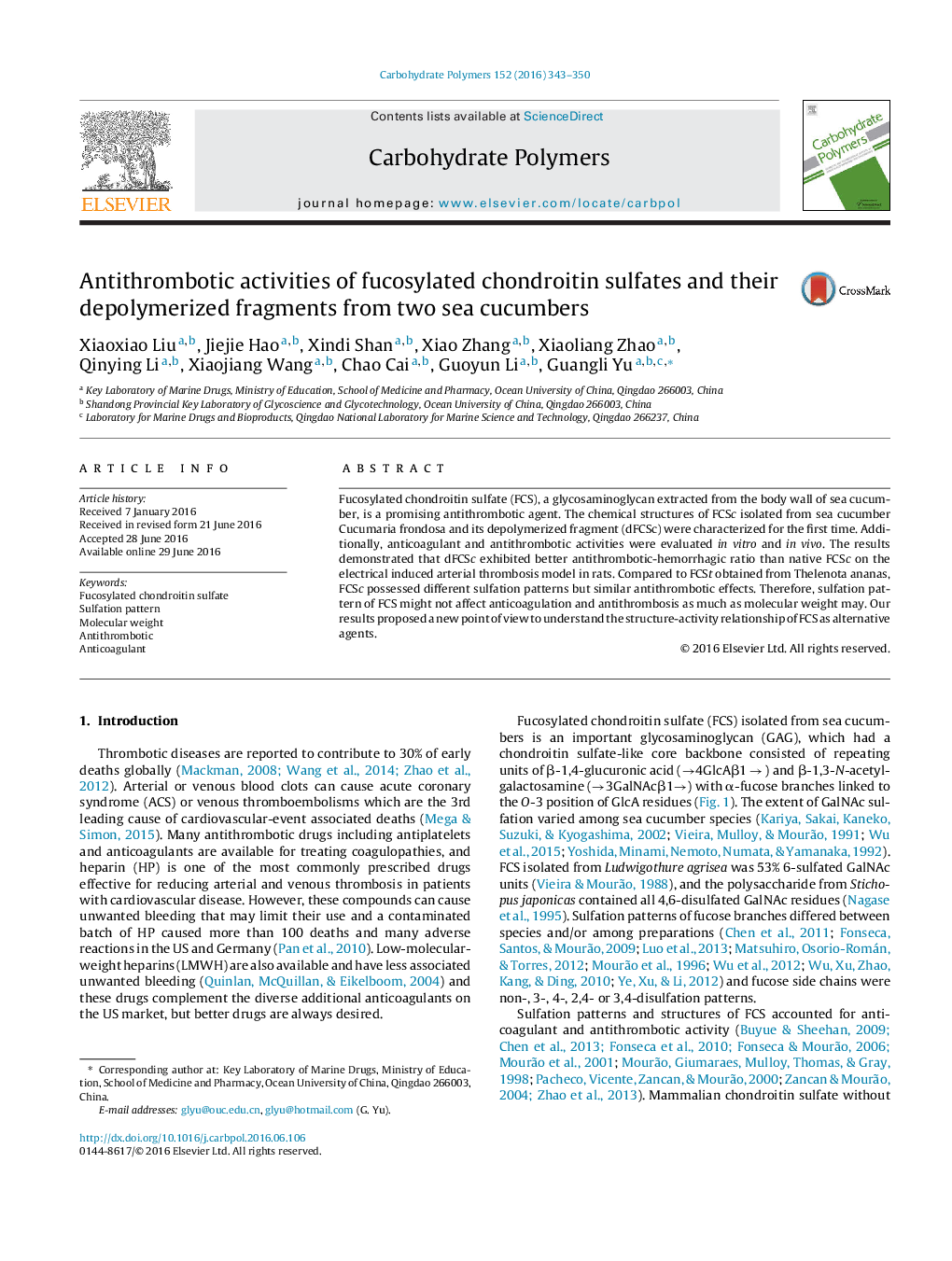| Article ID | Journal | Published Year | Pages | File Type |
|---|---|---|---|---|
| 1373652 | Carbohydrate Polymers | 2016 | 8 Pages |
•FCSs structures from two sea cucumbers were characterized.•Anticoagulant and anti-thrombotic activity were compared in vitro and in vivo.•FCSs had similar activity with different sulfation patterns.•Sulfation patterns might not affect anti-thrombotic activity as much as molecular weight.
Fucosylated chondroitin sulfate (FCS), a glycosaminoglycan extracted from the body wall of sea cucumber, is a promising antithrombotic agent. The chemical structures of FCSc isolated from sea cucumber Cucumaria frondosa and its depolymerized fragment (dFCSc) were characterized for the first time. Additionally, anticoagulant and antithrombotic activities were evaluated in vitro and in vivo. The results demonstrated that dFCSc exhibited better antithrombotic-hemorrhagic ratio than native FCSc on the electrical induced arterial thrombosis model in rats. Compared to FCSt obtained from Thelenota ananas, FCSc possessed different sulfation patterns but similar antithrombotic effects. Therefore, sulfation pattern of FCS might not affect anticoagulation and antithrombosis as much as molecular weight may. Our results proposed a new point of view to understand the structure-activity relationship of FCS as alternative agents.
